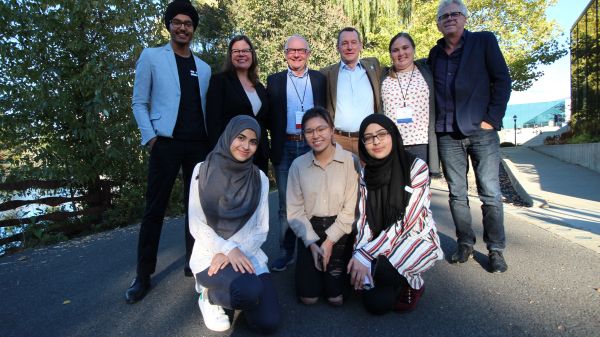Climate Conversations for Change

In this guest blog, Abhayjeet Singh Sachal, a Young Reporters for the Environment winner, shares about important climate conversations from the 2018 NAAEE conference.
Climate Conversations for Change
Change starts with conversation. This is something I’ve known since my eighth grade class, where my teacher Mr. Iachetta introduced sustainability into social studies lessons. Since then, I’ve traveled to the Arctic, where discussions with Inuit youth gave me true insights on the realities of climate change.
The power of conversation was a major theme at the 2018 North American Association for Environmental Educators (NAAEE) Conference. I had the honour of attending the major conference thanks to the support of the Delta School District.
Ultimately, I came away from the conference with a greater understanding of the inter-connectivity between subjects like environmental education, equity and representation, and infrastructure and human health. At almost every session I attended, engaging environmental professionals discussed the necessity of building personal connections with nature among the general public. It is only through a strong relationship with the natural environment that people will have a reason to live sustainably. By demonstrating the specific effects of climate change on local communities across North America we can drive the conversation about real world climate impacts on day to day life around the globe.

Above all, it is imperative that we remain optimistic. Change can happen quickly when masses of people realize the impact that climate change will have on their personal lives. Climate change impacts everyone on the face of this planet and only through personal connections and a diversity of perspectives can we tackle this issue effectively.
We all have a power to make a profound impact on the lives of others; at the NAAEE conference, it was clear that we need to start using that power today.
Abhayjeet Singh Sachal is a 2017 Young Reporters for the Environment winner (a program of the Foundation for Environmental Education). He is a12th grade student at Seaquam Secondary in Delta, British Columbia, and also the Co-Founder and Executive Director of Break The Divide, an international network that connects youth worldwide and inspires students to create change.
